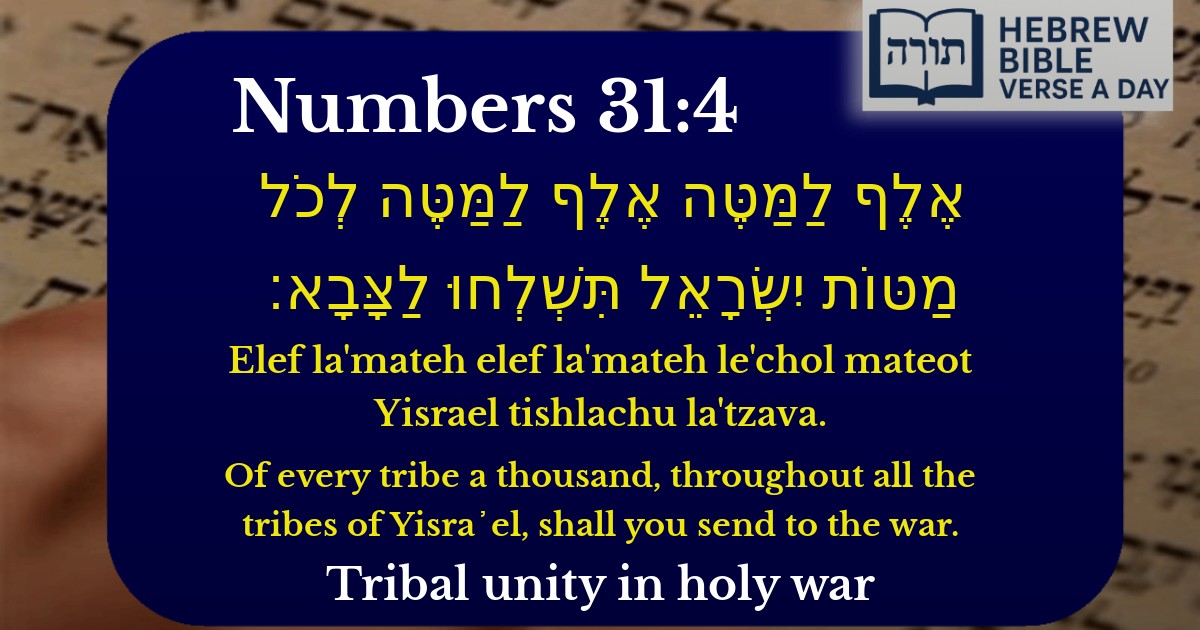Join Our Newsletter To Be Informed When New Videos Are Posted
Join the thousands of fellow Studends who rely on our videos to learn how to read the bible in Hebrew for free!
Hebrew Text
אֶלֶף לַמַּטֶּה אֶלֶף לַמַּטֶּה לְכֹל מַטּוֹת יִשְׂרָאֵל תִּשְׁלְחוּ לַצָּבָא׃
English Translation
Of every tribe a thousand, throughout all the tribes of Yisra᾽el, shall you send to the war.
Transliteration
Elef la'mateh elef la'mateh le'chol mateot Yisrael tishlachu la'tzava.
Hebrew Leining Text
אֶ֚לֶף לַמַּטֶּ֔ה אֶ֖לֶף לַמַּטֶּ֑ה לְכֹל֙ מַטּ֣וֹת יִשְׂרָאֵ֔ל תִּשְׁלְח֖וּ לַצָּבָֽא׃
Parasha Commentary
📚 Talmud Citations
This verse is not quoted in the Talmud.


Context in the Torah
The verse (Bamidbar 31:4) appears in the context of Hashem's command to Moshe to mobilize an army to wage war against Midian as retribution for their role in leading Bnei Yisrael astray through the incident of Baal Peor (Bamidbar 25). The instruction specifies that each tribe must contribute an equal number of soldiers - one thousand per tribe.
Equal Representation from All Tribes
Rashi explains that the repetition of "אֶלֶף לַמַּטֶּה" (a thousand per tribe) emphasizes that each tribe must contribute the same number, regardless of its size. This teaches that in matters of national importance, all tribes share equal responsibility in defending the honor of Hashem and the Jewish people.
Spiritual Dimension of Military Service
The Ramban notes that this was not merely a military campaign, but a sacred mission to carry out Divine justice. The equal representation symbolizes that the war effort required both physical strength and spiritual merit from all segments of the nation. The Talmud (Sotah 43a) derives from here that an army must include Torah scholars to ensure spiritual success in battle.
Midrashic Insights
Halachic Implications
The Rambam (Hilchot Melachim 7:1) cites this verse as establishing the principle that military service in a milchemet mitzvah (obligatory war) requires participation from all segments of the nation. The equal numbers from each tribe demonstrate that national defense is a shared responsibility that transcends tribal differences.